
Fortune News | Aug 14,2021
Selamawit Eshetu, who is in her mid-20s, was at the Main Department of Immigration & Nationality Affairs Office trying to renew her passport last Wednesday when she got into an argument with information personnel.
Selamawit has been travelling to Dubai since 2014, where she imports products to sell at her cosmetics shop 'Selam Cosmo' in the Bole area. Throughout the years, she has been able to do this relatively easily - until her passport expired.
To renew it, she was asked to present her renewed business license, in addition to an identification card, which is mandatory to get a passport.
“I brought what I was told to, but they shut me off after saying that my capital is less than 100,000 Br,” she says with frustration. “Why do such inconveniences keep happening in Ethiopia?”
The new procedure by the Office was introduced in October in a bid to curb 'illegal migration' that is undertaken without visas but with passports in hand, especially to the Middle East.
Even those whose passport has been expired are required to bring invitation letters and tickets as evidence of their travel, for renew.
Applicants are being required to submit documents that show that they have either been allowed to study or work overseas, hotel bookings or certificates of competence from accredited employment agencies.
Competency certificates require applicants to be at least 21 years of age and complete eighth grade. Individuals looking to travel to Middle Eastern countries with whom Ethiopia has signed bilateral labour agreements are required by law, after a proclamation by the Ministry of Labour & Social Affairs, to go through these employment agencies, receive a three-month training and acquire certificates.
Labour attachés in embassies abroad are assigned to oversee the safety and security of employees; hospitals are assigned to provide medical checkups; and over 100 agencies have been given licenses to serve as employment agencies under the new program.
“The main goal is to reduce abuse and harassment of Ethiopian workers that migrate,” Takele Assefa, a team leader at the Ministry of Labour & Social Affairs, told Fortune. “To overcome the problem, the Immigration & Nationality Affairs Office needed to collaborate with us.”
The government banned travel for domestic employment to the Middle East beginning in 2013, although illegal migration continued.
Citizens wait outside the Immigration and Nationality Affairs Office on Churchill Road.
The ban was lifted early this year, and bilateral labour agreements were subsequently signed with Saudi Arabia, Qatar and Jordan. To mitigate this illegal flow of job seekers, a new national council was established to prevent illegal human trafficking.
A circular from the Prime Minister’s Office ordering the Federal Police, Attorney General's Office, Immigration & Nationality Affairs, Civil Aviation Authority and Ethiopian Airlines to curtail and control illegal travel out of the country was also released.
Signed by Deputy Prime Minister Demeke Mekonnen, the letter issued on October 11, 2018, urges the listed institutions to curtail travellers for overseas employment with tourists and other visas.
Nonetheless, Ethiopia continues to be an important origin, transit and destination for regular and irregular migration flow in the Horn of Africa, according to the International Labour Organisation. The majority of Ethiopians are destined for the Middle East through Somalia, Djibouti and Yemen.
Passports could be used as a means of travelling to other countries that do not require entry visas from Ethiopia, such as Kenya. Passport frauds are also a problem perpetrated by individuals that apply for new passports claiming that they lost their previous one and can bring a certificate from local law enforcement bodies, according to the Office.
But this process, given that it has to deal with passports, is inconveniencing other travellers that are not going to the Middle East.
Mulatu Zeneb, 50 years of age, is waiting in a long queue at the Office intending to travel to the United States.
“I showed my invitation card to the office, but I am still unable to get my passport processed,” he says. “There is an internal miscommunication at the Office, which is inconveniencing us.”
According to Alembirhan Tafesse, public relations officer at the Immigration & Nationality Affairs Office, the problem is different in that applicants are showing up without fulfilling the necessary requirements.
“The main aim is to help fight 'illegal migration and smuggling, not to confuse people,” he said.
The office processes two types of visas, fast-track passports and normal passports. The former is given for those that have an emergency need for it, such as people with health problems, scholarship winners and licensed importers, and they must pay the required 900 Br. A passport through the fast-track process takes up to three days to obtain.
The normal process costs 600 Br and can take up to 45 days. Such delays are in contrast to a process that used to take only three days to process normal passports.
A shortage of foreign currency that delayed the importing of passports is another cause for the delay, according to officials of the Office, which on average issues 12,000 passports daily and serves 700 non-nationals a day.
Now the total numbers of passports issued by the Office, through its branches across the country, it has dropped to 1,500 to 2,000.
The Authority, which has been a major source of frustration for both locals and non-nationals, has recently gone through massive reforms, including facilitating payments for passports to be made through the Commercial Bank of Ethiopia and has delegated the Ethiopian Postal Service to handle delivery of new and renewed passports.
It has also moved two of its departments, for non-national applicants and passport re-issuance, to a new location with the main aim of solving the delays.
The recent problems encountered by Mulatu and Selamawit have taken place in less than a year’s time since the Authority called a press conference to announce the reforms at the Authority.
Alemberhan argues that another factor contributes to the current situation.
“Following the shortage of foreign currency, we are facing a lack of stickers and booklets for the passports that are imported from Israel and France," Alemberhan said.
On a yearly basis, the country spends five million dollars on imports to produce the passports.
As a result, the Authority is trying to minimise the number of new passports that have to be printed by limiting issuance only to applicants that can prove that they are going to travel legally.
This does not only exclude applicants that may immigrate illegally but also those that are looking to renew or get new passports without any intention to travel.
As a result, the requirements that have been added for the issuance of passports have reduced the number of applicants at the main office from at least 500 to between 200 and 300.
Yohaness Eramo, a lecturer at Unity University and researcher in migration, believes the new process can help reduce 'illegal migration' but hopes that the authorities can be more discrete.
“They should put in place a system that is more effective at distinguishing between applicants hoping to travel illegally and legitimate applications for new passports or renewals,” he says.
Aside from efficiency and effectiveness for its intended purpose, the Office's new requirements for passport issuance is raising debates over constitutionality.
"Separate treatment of individuals on a service that should be equally provided to all is not constitutional," says Khalid Kebede, a lecturer on constitutional law at Bahir Dar University. "It would have been better to request these requirements at departure points."
Mengistu Alemayehu, deputy director in charge of Migration & Nationality Affairs, argues that his office is not violating the constitution.
"We are not denying citizens freedom of movement," Mengistu said, "however, we are playing our role in controlling the 'legal movement' of the citizens."
Selamawit, who has found the situation unbearable, left the compound of the Authority furious.
"They say they aim at controlling migration," she said, "but they are forcing us to migrate with unacceptable barriers."
PUBLISHED ON
Dec 10,2018 [ VOL
19 , NO
972]

Fortune News | Aug 14,2021
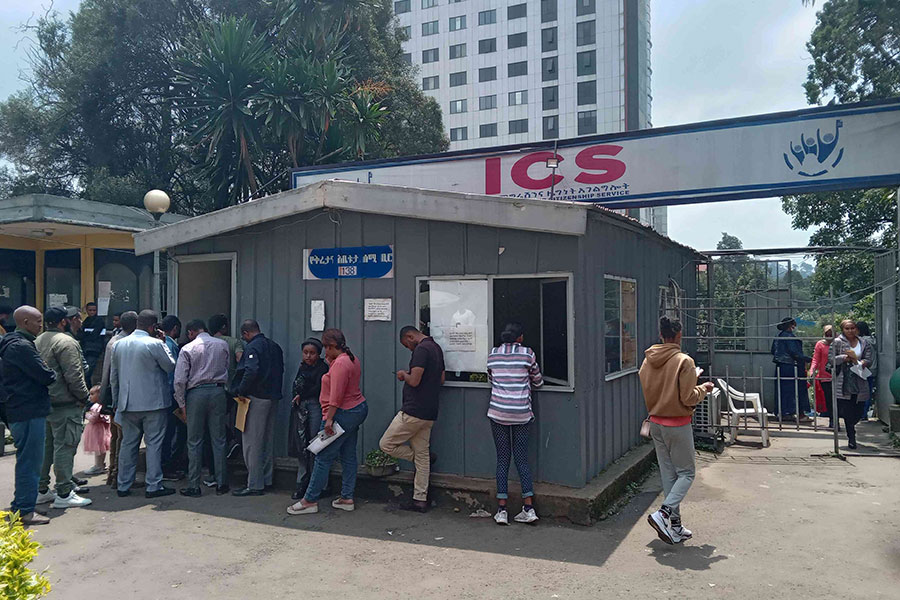
Agenda | Aug 12,2023
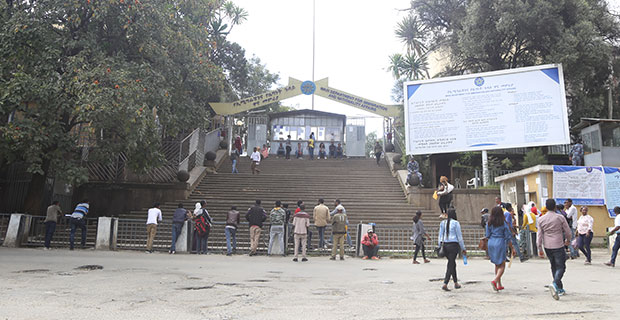
Fortune News | Aug 17,2019
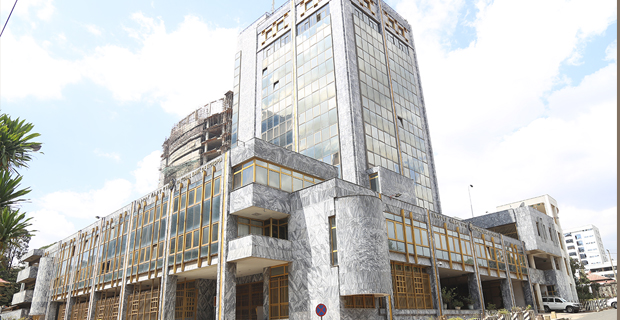
Fortune News | Nov 27,2018
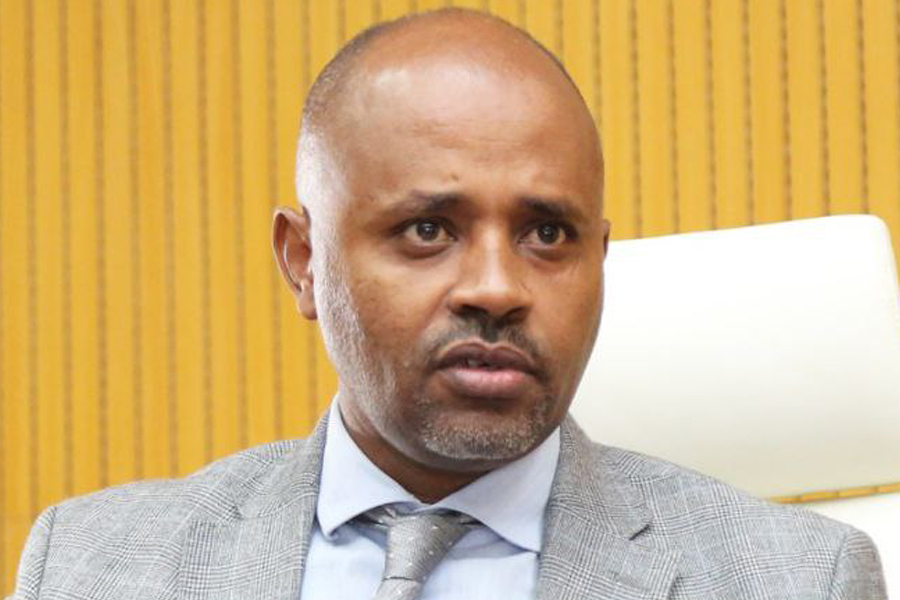
Fortune News | Aug 25,2024

Sunday with Eden | Sep 14,2019

Radar | Jun 05,2021
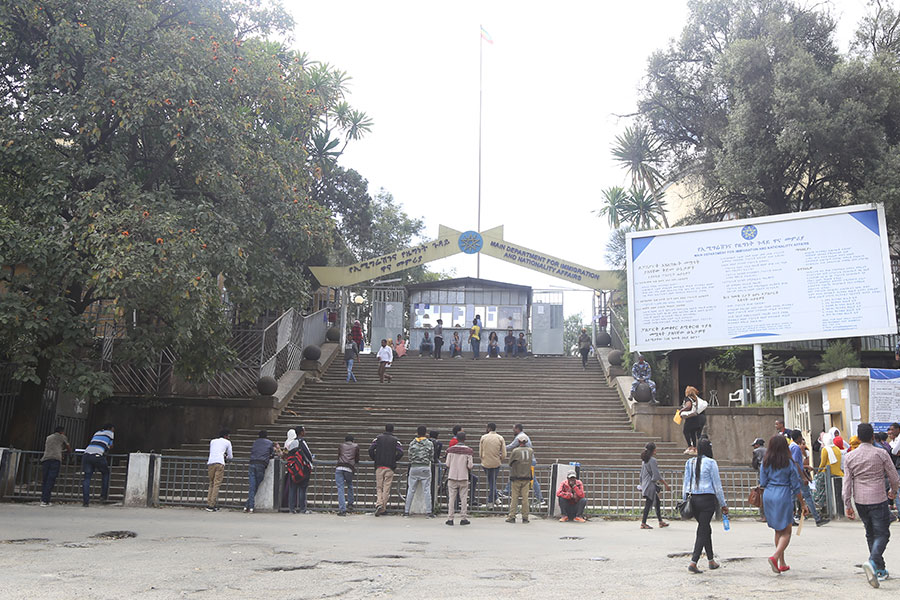
Photo Gallery | Dec 10,2018

My Opinion | Dec 10,2018

Sponsored Contents | Jan 31,2022

Dec 22 , 2024 . By TIZITA SHEWAFERAW
Charged with transforming colossal state-owned enterprises into modern and competitiv...

Aug 18 , 2024 . By AKSAH ITALO
Although predictable Yonas Zerihun's job in the ride-hailing service is not immune to...

Jul 28 , 2024 . By TIZITA SHEWAFERAW
Unhabitual, perhaps too many, Samuel Gebreyohannes, 38, used to occasionally enjoy a couple of beers at breakfast. However, he recently swit...

Jul 13 , 2024 . By AKSAH ITALO
Investors who rely on tractors, trucks, and field vehicles for commuting, transporting commodities, and f...

Nov 1 , 2025
The National Bank of Ethiopia (NBE) issued a statement two weeks ago that appeared to...

Oct 25 , 2025
The regulatory machinery is on overdrive. In only two years, no fewer than 35 new pro...

Oct 18 , 2025
The political establishment, notably the ruling party and its top brass, has become p...

Oct 11 , 2025
Ladislas Farago, a roving Associated Press (AP) correspondent, arrived in Ethiopia in...